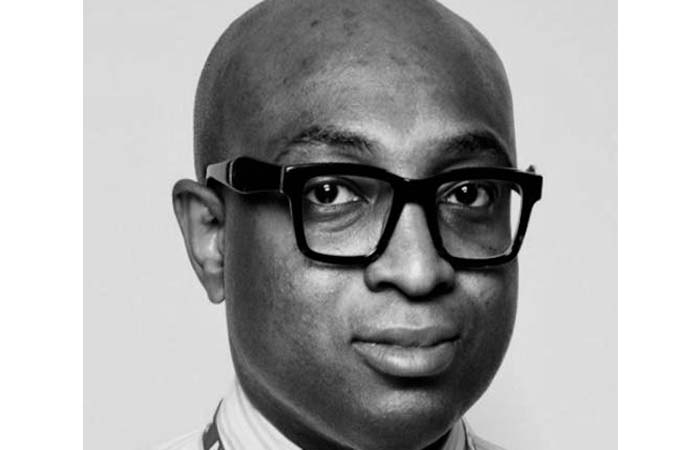Do we need a dose of realism?
In Views
Follow this topic
Bookmark
Record learning outcomes
Politicians the world over are trading in their heroic ideals for tough realism and pragmatic alliances. Ade Williams asks if pharmacy should do the same
As a young child, much to the irritation of my parents and teachers, my peers and I often used the commonly spoken Nigerian Pidgin. This English-based Creole language serves as a lingua franca across Nigeria.
With its sociolinguistic connotations, it was frowned upon, and social stratification was evident in the disapproval surrounding its use.
Over time, these boundaries have blurred, and terminology from Nigerian Pidgin is even included in the Oxford English Dictionary. Those who fought hard to maintain traditional linguistic standards could never have imagined the changes to come.
One common refrain we uttered while watching movies was, “Hero no dey die”. We would say this during those cliffhanger moments when survival seemed improbable, but with the movie still having a good length to run, we instinctively felt that the survival of the protagonist was assured in this enchanting narrative.
My own enchantment with community pharmacies as ‘NHS heroes’ dates back to my wife Jess becoming a pharmacy contractor. Put simply, it opened my eyes to the self-sacrifice and dedication that defines community pharmacy practice.
I have never revised this relief. But after 15 years, and with numerous survival campaigns under my belt, the unfolding reality has caused me to question some improbable narratives. As pharmacies close, the headcount of heroes is dwindling, and if adequate support is not provided we might see even more drastic changes this year.
I must reflect on the part I have played; indeed, we may all be complicit in creating this situation. Has the world changed without our notice, or was it always this way and we just couldn’t accept it?
My mother once shared insightful observations about community pharmacy: emotional attachment to ones’s work and the continual struggle to define its value through acknowledgement, appreciation, and sufficient funding are somewhat unique to the profession.
This brings a constant risk of heartache. In the absence of sufficient support, we become overly reliant on appreciation and recognition to feed hopes of much-needed funding.
Heroism gives you something or someone to cling to when facing relentless burdens, financial instability, and exhausted hope. There is a harsh reality to confront as the heroes fade away. With many more contemplating their next steps, how do I maintain a hopeful outlook?
This plight explains my fascination with the new approach the UK is taking in mapping its foreign policy approach, grappling with the realism of our current world versus the idealism of the world we strive to help create—progressive realism.
The doctrine of progressive realism involves recognising shifts in power and being prepared to accept trade-offs while still working to advance progressive causes. In the context of foreign affairs, this may seem relatively straightforward, cloaked in shared collective values – the global order.
But what about community pharmacy? How is it viewed, and how is it treated? Do those in power merely tolerate us without taking us seriously?
We need to reflect on our status within the NHS. My assessment of the English pharmacy contract negotiations and inherent trade-offs comes from analysing and living with the agreed outcomes.
For too long, we have lacked buy-in for a progressive NHS agenda that delivers change in practice, adopts evidence-based care, and embeds world-leading standards of clinical practice – all things we know we can deliver.
Surely enabling community pharmacies to fill unaddressed fundamental gaps that threaten the existence of the NHS – such as health equity, accessible care, evidence-informed self-care, and prevention – without even ‘displacing’ anyone makes sense?
This is no critique of the contract negotiators but a summation of my withered hopes and aspirations.
Most disappointingly, I struggle to see how we have been actively working towards this goal. While I am not implying such efforts are non-existent, amid numerous heroic endeavours, we certainly have no joined-up roadmap or approach toward ideals that could fundamentally reshape our profession.
I often wonder if the urgency brought about by our own ‘heroism’’ leads to a misguided sense of value in it, preventing us from acknowledging the abnormal, intolerable state of affairs whose very existence is a sign of collective failure.
I am learning that progressive realism demands tough-minded honesty – acknowledging the current state of affairs and using a realistic lens to pursue shared goals. That said, using realism to nurture the hope that fuels heroism is often easier. It seems that community pharmacy may be guilty of this.
However, we must ask ourselves whether we are now ready to honestly assess where we stand, how we arrived here, and the choices and options (trade-offs) that can guide us to better outcomes.
More importantly, do we now possess the maturity and courageous humility needed to make this transformation happen?
Ade Williams owns pharmacies in Bristol

